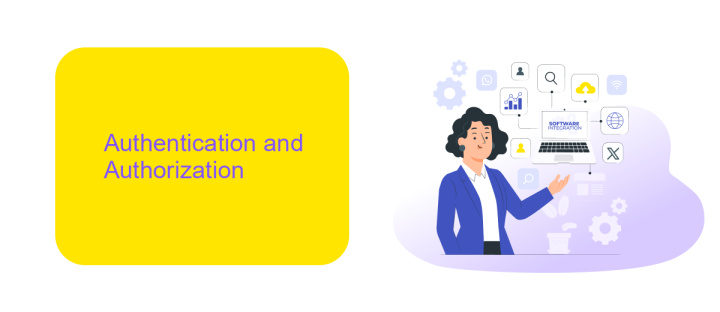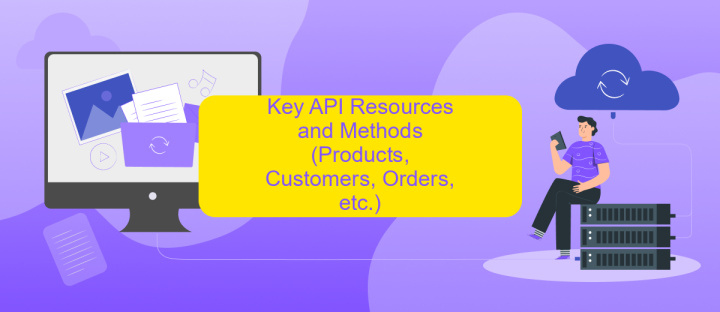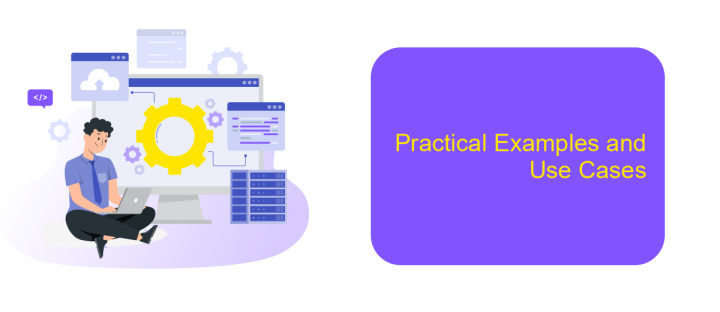Magento Integration API
The Magento Integration API is a powerful tool that enables seamless connectivity between Magento and various third-party applications. By leveraging this API, businesses can streamline operations, enhance customer experiences, and improve data management. Whether integrating with CRM systems, payment gateways, or inventory management solutions, the Magento Integration API provides a flexible and scalable solution to meet diverse business needs, fostering innovation and efficiency in the e-commerce landscape.
Introduction to Magento Integration API
Magento Integration API is a powerful tool designed to streamline the process of connecting Magento with other systems, applications, and services. This API offers a robust set of features that enable businesses to enhance their e-commerce capabilities by integrating third-party solutions seamlessly. By leveraging the Magento Integration API, developers can automate various tasks, reduce manual efforts, and improve data accuracy across platforms.
- Facilitates seamless data exchange between Magento and external systems.
- Supports REST and SOAP protocols for versatile integration options.
- Enables automation of inventory management, order processing, and customer data synchronization.
- Offers secure and scalable solutions for businesses of all sizes.
- Allows customization to meet specific business needs and workflows.
Incorporating the Magento Integration API into your e-commerce strategy can significantly boost operational efficiency and customer satisfaction. By automating routine tasks and ensuring real-time data updates, businesses can focus on delivering exceptional customer experiences. Whether you're looking to integrate a CRM system, a payment gateway, or a shipping solution, the Magento Integration API provides the flexibility and reliability needed to achieve seamless connectivity and drive growth.
Authentication and Authorization

When integrating with Magento's API, authentication and authorization are crucial to ensure secure data access and operations. Magento provides several authentication methods, including OAuth, token-based, and session-based authentication. OAuth is commonly used for third-party integrations, allowing secure access without sharing credentials. Token-based authentication is ideal for custom integrations, where a token is generated for API access, providing a secure and straightforward method for authenticating requests. Session-based authentication is typically used for frontend applications that require user-specific data access.
Authorization in Magento is managed through user roles and permissions, ensuring that only authorized users can perform specific actions. This is especially important when dealing with sensitive data. For businesses looking to streamline their integration processes, services like ApiX-Drive can be invaluable. ApiX-Drive simplifies the setup of API integrations by providing a user-friendly interface and pre-built connectors, reducing the complexity of managing authentication and authorization. By leveraging such tools, businesses can focus on their core operations while ensuring secure and efficient API interactions with Magento.
Key API Resources and Methods (Products, Customers, Orders, etc.)

The Magento Integration API provides a robust framework for interacting with various components of the Magento ecosystem. This API facilitates seamless integration with different modules, allowing developers to efficiently manage e-commerce operations. Key resources include products, customers, and orders, each offering specific methods to perform essential tasks.
- Products: Access and manage product data through methods like create, update, and delete. Retrieve product details or list all products to maintain inventory effectively.
- Customers: Utilize methods to create and update customer accounts, manage customer data, and retrieve customer information, enhancing user experience and personalization.
- Orders: Handle order processing with methods to create, update, and track orders. Retrieve order details and manage order statuses to ensure smooth transaction workflows.
By leveraging these resources and methods, businesses can streamline processes, enhance customer satisfaction, and optimize their Magento store's performance. The API's flexibility and comprehensive capabilities make it an indispensable tool for developers aiming to build sophisticated e-commerce solutions.
Practical Examples and Use Cases

Magento Integration API offers a versatile platform for developers to connect and extend the functionality of their online stores. By leveraging this API, businesses can streamline operations and enhance customer experiences. For instance, integrating a third-party CRM system with Magento allows for seamless data synchronization, ensuring customer information is always up-to-date.
Another practical application is inventory management. By connecting Magento with an external inventory system, businesses can automate stock updates, reducing the risk of overselling and improving order fulfillment accuracy. This integration helps maintain optimal stock levels and provides real-time inventory visibility.
- Automate order processing by linking Magento with an ERP system, reducing manual errors and saving time.
- Enhance customer service by integrating Magento with a helpdesk platform, allowing for quick access to order details and customer interactions.
- Boost marketing efforts by connecting Magento with email marketing tools to create personalized campaigns based on customer behavior.
These examples highlight the flexibility and power of Magento Integration API. By implementing these integrations, businesses can achieve greater efficiency, improve customer satisfaction, and drive growth. The API serves as a bridge, enabling various systems to work together seamlessly, ultimately enhancing the overall e-commerce ecosystem.
- Automate the work of an online store or landing
- Empower through integration
- Don't spend money on programmers and integrators
- Save time by automating routine tasks
Best Practices and Troubleshooting
When integrating with Magento's API, it's crucial to adhere to best practices for a seamless experience. Start by thoroughly understanding Magento's API documentation to ensure you're using the correct endpoints and methods. Always use secure connections (HTTPS) to protect data in transit. Implement proper error handling to gracefully manage API call failures and avoid data inconsistencies. Regularly update your integration to accommodate Magento's updates and maintain compatibility. Consider using ApiX-Drive, a service that simplifies integration processes with its user-friendly interface and automation capabilities, reducing the need for extensive coding knowledge.
If you encounter issues during integration, begin troubleshooting by checking your API credentials and permissions. Ensure that the API user has the necessary rights to access the required resources. Validate your API requests against Magento's documentation to confirm correct formatting. Use logging to capture detailed information about API interactions, which can be invaluable for diagnosing problems. If problems persist, consult Magento's community forums or seek professional assistance. Utilizing a service like ApiX-Drive can help mitigate these challenges, as it offers pre-configured solutions and expert support to streamline the integration process.
FAQ
What is Magento Integration API?
How can I use Magento Integration API to connect with third-party applications?
What are the common use cases for Magento Integration API?
Is it possible to automate Magento integrations without coding?
What are the security considerations when using Magento Integration API?
Routine tasks take a lot of time from employees? Do they burn out, do not have enough working day for the main duties and important things? Do you understand that the only way out of this situation in modern realities is automation? Try Apix-Drive for free and make sure that the online connector in 5 minutes of setting up integration will remove a significant part of the routine from your life and free up time for you and your employees.


